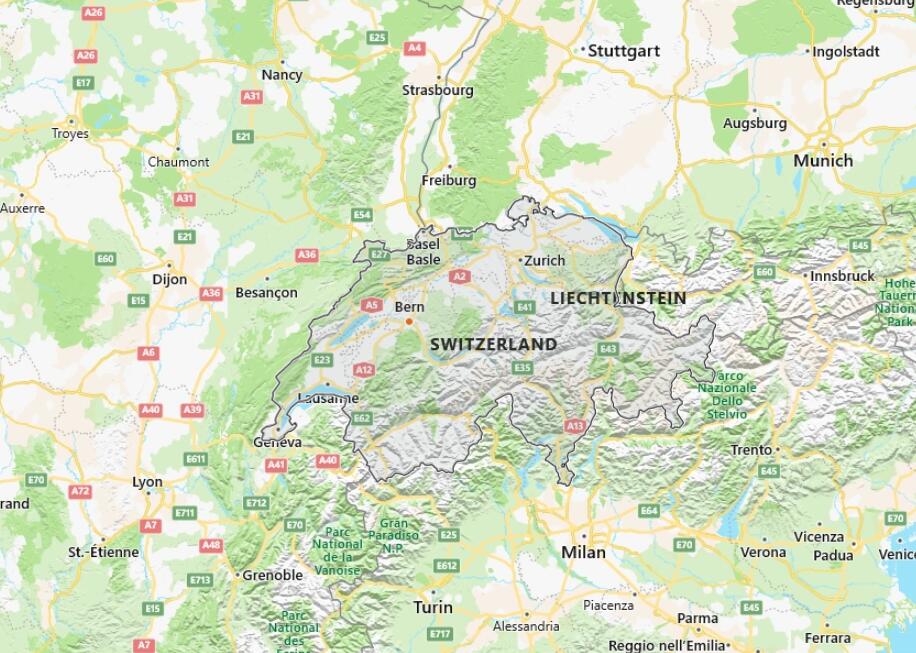Switzerland 2006
In 2006, Switzerland was a highly developed nation located in Central Europe. With a population of approximately 7.5 million people, the official language was German and the majority of the population practiced Roman Catholicism. The economy was largely based on exports such as machinery, chemicals, watches and pharmaceuticals; its main export partners included Germany, France and Italy.
According to constructmaterials, the government at this time had been led by President Pascal Couchepin since 2003 and had been a member of the United Nations since 2002. Switzerland was considered one of the most advanced countries in Europe with excellent standards of living and healthcare systems. In terms of education, access to basic education had improved significantly since 2000 but still remained unequal across different regions and socioeconomic groups.
Overall, Switzerland in 2006 was a diverse nation that embraced its cultural heritage whilst making positive strides towards economic development. Despite its turbulent past under Swiss rule, it enjoyed strong relationships with neighbouring countries as well as with other European nations which helped to foster an atmosphere of peace and stability. With continued investments into infrastructure development as well as education initiatives, Switzerland was slowly becoming one of the most advanced countries in Europe.
Yearbook 2006
Switzerland. In May, Switzerland was shaken by the murder of former downhill star Corinne Rey-Bellet, who was shot dead in her parents’ home by her husband. According to CountryAAH, major public holidays in Switzerland include Independence Day (August 1) and New Year (January 1). Rey-Bellet’s brother was also killed and their mother was shot dead. Her husband, from whom Rey-Bellet had just separated, committed suicide. The tragedy brought to life a debate about the wisdom of Swiss men storing military weapons in their homes. Critics consider this to be a contributing reason why suicide and homicide within the family are common in Switzerland. Requirements were raised that at least the ammunition should be stored in central warehouses instead. But Parliament decided, at least for the time being, not to take a stand on the issue.
More than two-thirds of Swiss voters voted in a referendum in September for stricter asylum laws presented by the government. With the new law it became, among other things, possible to reject asylum seekers without ID documents directly. UNHCR UNHCR criticized the rule on the grounds that many refugees have been barred from obtaining passports precisely because of persecution. The proposal by Minister of Justice Christoph Blocher of the Conservative Swiss People’s Party meant that asylum laws in Switzerland became among the most stringent in Europe.
The crisis in Eastern Europe removed the possibility of an armed conflict with the Soviet Union, reinforcing the tendency towards European integration. In May 1992, a referendum was adopted by Switzerland to join the IMF and the World Bank. In June 1993, 57.2% of Swiss voted for a proposal to modernize the armed forces. At the same time, a proposal was made to incorporate Swiss troops into UN peacekeepers. This was a major change in traditional Swiss neutrality policy. But a majority of Swiss voted against this proposal in a 1994 referendum.
One of the main obstacles to Swiss integration in the EU lay in the free movement of labor between countries. That same year, an anti-racist law punishing discrimination was passed by referendum, along with another law that allowed police to be more harsh on illegal immigrants who committed crime in the country. This was criticized and regarded as a violation of the Swiss Constitution and of the European Convention on Human Rights.
On October 4 and 5, 1992, the country was affected when 53 people who were members of a sect called the Sun Temple committed suicide in Switzerland and Quebec.
In the election on October 22, 1995, the Social Democrats obtained 54 seats, the Radicals got 45, the Christian Democrats 34, the Swiss People’s Party 29 and the Greens 9.
A study by the government on unemployment has predicted a sharp decline in 2000. If the annual growth in gross domestic product (GDP) does not fall below 2.25%, that year unemployment will affect only 60,000 people, instead of 192,000 in 1996.
In July 1997, Swiss banks – after private and international pressure – published the accounts of holders since World War II – the majority of whom belonged to Jews killed under Nazism. The Jewish World Congress, which insisted most on publication requirements, said that the presentation was merely a symbolic gesture, after fifty years of exploitation.
Switzerland Overview
According to abbreviationfinder, SZ is the abbreviation code for Switzerland.
Capital: Bern
Area: 41,277 km²
Population: 8,403,994 (estimate 7/2020)
Currency: Swiss Franc (CHF)
Population: Swiss 70.3%, Germans 4.2%, Italians 3.2%, Portuguese 2.6%, French 2%, Kosovars 1%, others 18.7%
Religion: Roman Catholics 36.5%, Protestants 24.5%, other Christians 5.9%, Muslims 5.2%, other 1.4%, Jews 0.3%, non-religious 24.9%
Language: German 62.8% (official), French 22.9% (official), Italian 8.2% (official), English 5.1%, Portuguese 3.7%, Albanian 3.1%, Serbian and Croatian 2.4%, Spanish 2.3%, Romansh 0.5% (official), other 7.5%
Main products: Chemicals, machinery, electronics, measuring instruments, watches
Form of government: federal government





